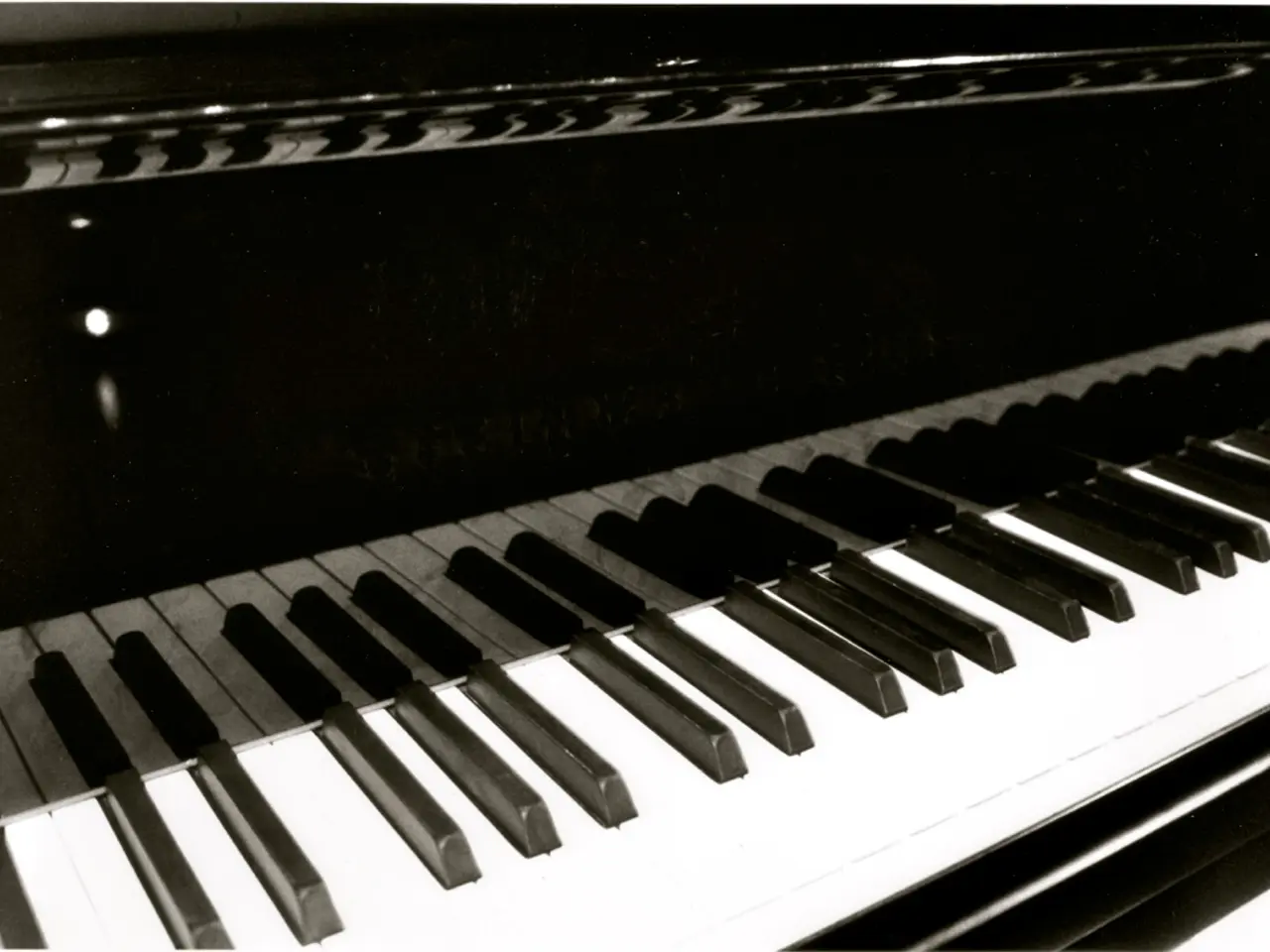Differentiating a Yamaha piano from a Steinway: Key Components and Distinctions
In the world of pianos, two brands stand out as the most prestigious: Yamaha and Steinway. Whether you're a seasoned professional or a beginner, understanding the differences between these two iconic brands can help you make an informed decision when choosing your next piano.
When considering Yamaha and Steinway, factors such as sound quality, build quality, design, action, and touch should be taken into account.
Sound Quality
Steinway pianos are renowned for their rich, complex, and unique tonal qualities. This is largely due to their choice of tonewoods and handcrafted manufacturing processes. Their sound is often described as warm and powerful with nuanced resonance, favored in concert settings and by professional pianists.
On the other hand, Yamaha pianos are praised for a more consistent and clear tone, often characterized as bright and precise. Yamaha incorporates advanced technology and sampling (in digital models) to simulate grand piano sounds, resulting in authentic and expressive tones suitable for a wide range of players.
Build Quality
Steinway pianos are largely handcrafted using traditional methods with premium solid woods, ensuring durability and a unique character to each instrument. Yamaha pianos feature highly consistent, state-of-the-art manufacturing processes that emphasize precision and uniformity across instruments, making them a durable and long-lasting choice.
Design
Steinway offers classic, elegant designs steeped in tradition, often favored in concert halls and prestigious venues. Yamaha offers a wide variety of both acoustic and digital pianos with modern, sleek designs. Yamaha's digital lines, like the Arius or Clavinova series, mimic traditional designs while incorporating contemporary finishes and high-tech features.
Action and Touch
Steinway’s key action is considered responsive with a natural weight that allows for nuanced control and dynamic shading preferred by advanced pianists. Their action is often described as lighter and more refined, allowing for expressive playing. Yamaha’s action, including that of their baby grands (e.g., GC1), is precise and consistent but tends to be slightly firmer or heavier, which some players find demanding or fatiguing over long periods.
In digital pianos, Yamaha usually provides graded hammer action that simulates acoustic piano touch with different levels of key weighting and sensitivity.
Price
Yamaha prices have risen over the years but still retail for a fair price. The price contrast between Yamaha and Steinway pianos is vast, with Steinways being significantly higher in cost. Steinway has seen a significant price rise within the last decade.
However, it's important to remember that the quality of a piano, regardless of its price, is not solely determined by its cost. Both Yamaha and Steinway pianos are built with high-quality materials and by hand, with great attention to detail.
Each Steinway piano can sound slightly different compared to others, while Yamaha pianos, built with Japanese craftsmanship and parts, offer a consistent and reliable sound.
In summary, Steinway pianos excel in traditional craftsmanship and rich acoustic character, ideal for professionals and concert use, while Yamaha pianos offer consistent, reliable quality with technological advancements, appealing to a broad range of players, including beginners and intermediates. The choice depends on your priorities—whether you value handcrafted sound and touch (Steinway) or modern consistency and technological features (Yamaha).
Both brands build their pianos to last generations. The keys of Yamaha pianos are made from spruce wood, and the frame has a unique coating for signature acoustics. The Steinway frame consists of multiple layers of thick, maple wood and is usually finished in black mahogany.
The pedals of Steinway pianos are usually brass, and the strings are made from steel and copper. The Steinway keyboard is made with Bavarian spruce and topped with polymer. The keys of Yamaha pianos are made from spruce wood, and the frame has a unique coating for signature acoustics.
Looking into used models of both brands can result in great savings. Whether you choose Steinway or Yamaha, you're investing in a piano built to last and deliver exceptional performance for years to come.
The sound quality of Steinway pianos is often described as warm and powerful, with nuanced resonance, while Yamaha's sound is characterized as bright and precise, incorporating advanced technology for a more authentic and expressive tone.
Yamaha pianos boast a durable and long-lasting build, achieved through highly consistent, state-of-the-art manufacturing processes, while Steinway pianos are handcrafted using premium solid woods, resulting in unique character and durability for each instrument.




